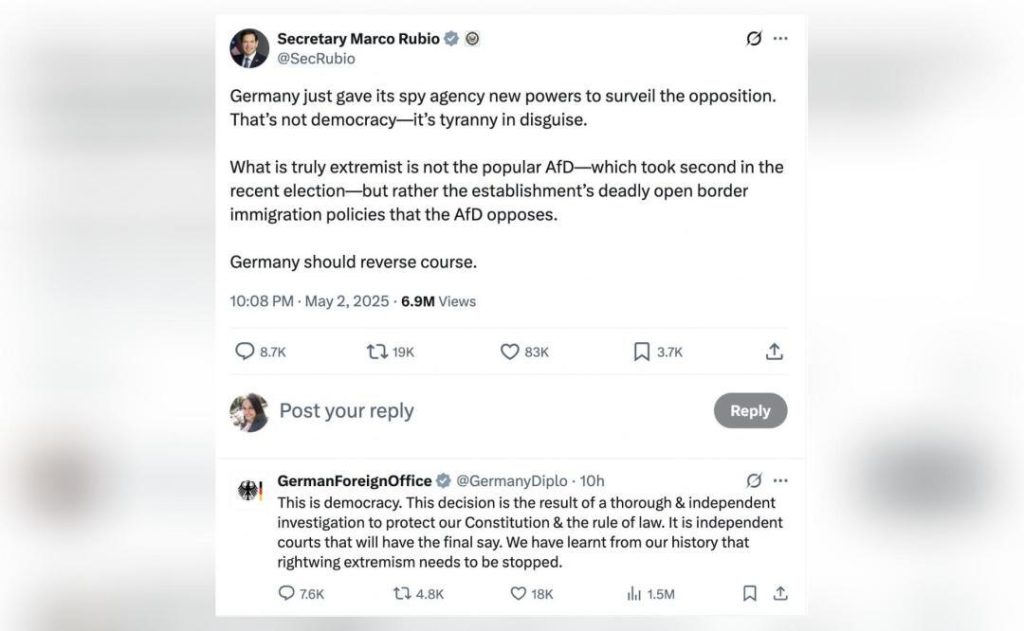
US’ Rubio & German govt clash over AfD party’s ‘extremist’ tag
In a recent development, US Secretary of State Marco Rubio and the German Foreign Ministry have clashed over the German government’s decision to term the far-right Alternative for Germany (AfD) party as “extremist”. The controversy has sparked heated debates and raised concerns about the impact on the global political landscape.
Rubio, who is known for his strong stance against extremist ideologies, accused the German government of enabling “tyranny in disguise” by labeling the AfD party as extremist. He claimed that the decision was a result of political correctness and a failure to recognize the party’s legitimate political views.
However, the German government has maintained that the decision was made after a thorough investigation to protect its Constitution. In a statement, the German government said, “The decision regarding AfD is a result of thorough investigation to protect our Constitution. We cannot allow any political party to undermine our democratic values and principles.”
The controversy began when Germany’s domestic intelligence agency, the Federal Office for the Protection of the Constitution (BfV), classified the AfD party as “extremist” due to its alleged ties to right-wing extremist groups and individuals. The agency claimed that the party’s ideology is based on a distorted view of the world and is characterized by a rejection of democratic values and principles.
The AfD party, which has been a part of the German parliament since 2017, has been criticized for its anti-immigrant and anti-Islam rhetoric. The party’s leaders have been accused of spreading hate speech and promoting xenophobia, which has led to concerns about its impact on German society and politics.
Rubio’s remarks have sparked a heated debate in Germany, with many politicians and experts defending the government’s decision to term the AfD party as extremist. They argue that the party’s ideology is a threat to democracy and that the government has a responsibility to protect its citizens from hate speech and extremism.
However, others have criticized Rubio’s comments, saying that they are an attempt to stifle free speech and undermine the democratic process. They argue that the AfD party has a right to express its views, even if they are controversial or offensive.
The controversy has also raised concerns about the impact on German-American relations. The German government has expressed its commitment to maintaining a strong and close relationship with the US, but the spat over the AfD party’s “extremist” tag has created tension between the two countries.
In response to Rubio’s comments, the German government has emphasized its commitment to protecting democracy and human rights. Foreign Minister Heiko Maas said, “We reject any attempts to undermine our democratic values and principles. We will continue to defend our Constitution and our values, and we will not be swayed by external pressure or attempts to stifle our free speech.”
The controversy has also sparked a debate about the definition of extremism and the role of governments in regulating political parties. Some argue that governments have a responsibility to protect their citizens from hate speech and extremism, while others argue that governments should not interfere with political parties’ right to express their views.
In conclusion, the clash between US Secretary of State Marco Rubio and the German government over the AfD party’s “extremist” tag is a complex and contentious issue. While Rubio’s comments have sparked a heated debate, the German government’s decision to term the AfD party as extremist is a result of a thorough investigation to protect its Constitution.
The controversy raises important questions about the definition of extremism, the role of governments in regulating political parties, and the impact of hate speech on society and politics. As the debate continues, it is essential to remain vigilant and committed to protecting democracy and human rights.



